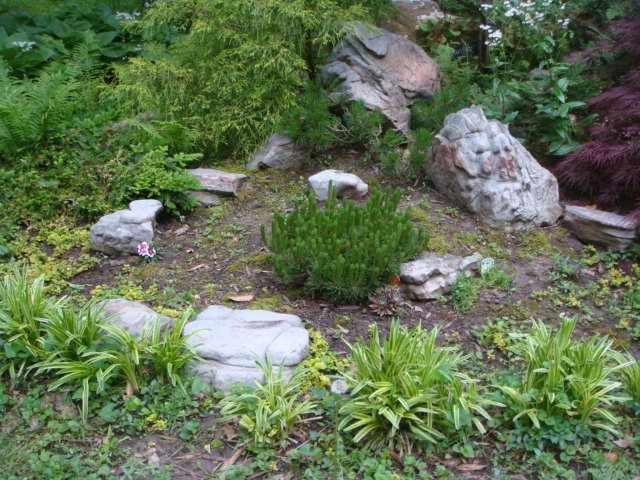Good morning!
After a long spell of rain, according to the weather forecast, we are still continuing rainy days. But, fortunately, we have a very bright Sunday morning today.
After the beautiful, stable, soft, and serene bell sounds and sittings, we have the very soft, serene, peaceful, and beautiful world with the sound of birds’ singing, waterfall and also cars, and the bright sunlight.
They all come into us and are with us in harmony, peace, and truth. Yesterday, I went into the garden and saw a lot of creeping Charlies. I removed them and literally discovered beautiful moss, tiny flowers, and vines. I enjoyed bountiful, beautiful fruition of the past.
When we go into the garden to find and offer flowers to the Buddha statues, we discover more flowers, more beautiful things, along the way and around our garden. Only by stepping out from our small selves to actual actions can we witness truth, beauty, and goodness.
If we do samu (work), we find more things in and around us in newer, better, wider, holier appreciations and abilities. It is difficult to continue our practice, much less to do samu, so people just come and go. But, you’ve been practicing both sitting and samu.
We need both. Just visiting here and sitting, then going back home, we may enjoy a little taste of peace; but we just continue our narrow selves, never discover, deepen, and develop more truth, peace, harmony, and beauty in our newer, greater living in us and with all.
In Buddhism we recommend cultivating or accumulating “hidden virtues” (behind the scene work), behind visible or beyond profitable gains. We work and accumulate hidden virtues, finding hidden beauties, and we become more wholly wholesome.
Hidden virtue is “intoku,” (隠徳) in Japanese, which can be written as negative virtue (陰徳). We only want positive, visible values, virtues, and merits. But sitting and samu are two sides of one practice which makes it possible for us to become wholly wholesome.
People do not like negative virtues, because they seems negative to the self. They are, however, negative in a conventional, secular, mundane sense. It is actually positive when we look at it from the other side – the dharma, the wholly wholesome, world – the awakened world.
In Buddhism we talk about two refuges, self and dharma. Everybody has the individual (actually divided, separated) self. This is like a raindrop, dewdrop, or water-drop separated from air, clouds, or ocean. Thus we see the bell, flowers, trees outside of us as “others.”
If we do not cultivate, we cannot make a good sound, even though we read or listen to someone speaking about it. Only when we actually do it and embody the new skills with and in our own bodies, beyond minds, can we create and commonly share the beautiful sounds.
This applies to everything – in meeting flowers, trees, and people – the whole world is separated among separated selves. When we sit down, however, we can come back to the dharma world and settle there in truth, peace, harmony, goodness, and beauty.
Now we need to set out into our actions – samu – hitting the bell, harvesting the crop. Then only can we enjoy beautiful sounds, flowers, fruits, and the world. The more we cultivate our bodies and minds, the more truth, peace, harmony, and happiness we can enjoy.
We have a lot of problems and sufferings in our world, because we do not cultivate our bodies and minds. Rather than cultivating great, mature, and joyful minds (the three minds), we just continue to create smaller, more immature and sorrowful minds.
The Gakudoyojinshu (Collection of Cautions for Learning the Way) starts with generating the awakening mind, and ends with realization here and now. The practice cycle (aspiration, action, unconditioned peace, and awakening) continues constantly.
Thus only we can live on joy with all. Otherwise we just continue to create more problems and sufferings. Our practice cycle starts from self and reaches the dharma, but again we must come back to our selves in concrete actions, settle there, and go on further.
5/22/11

